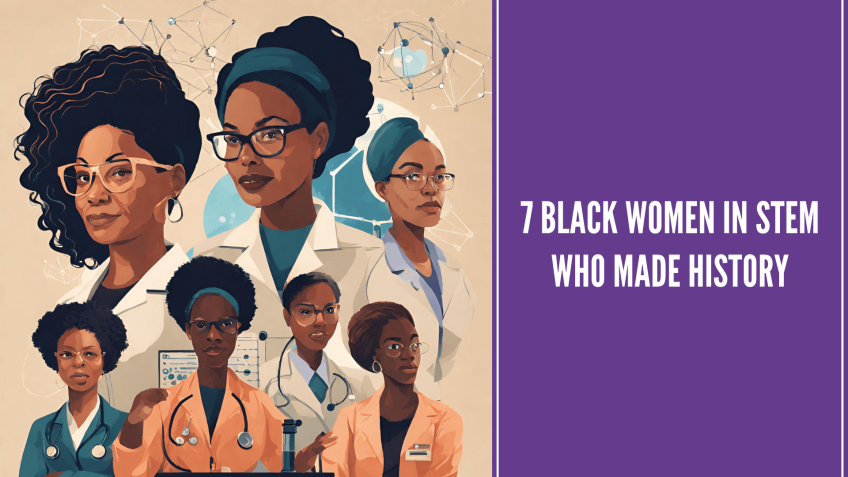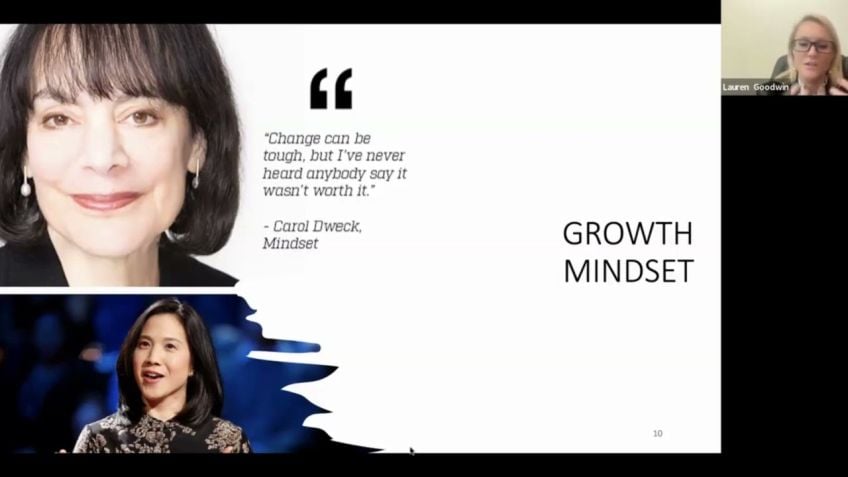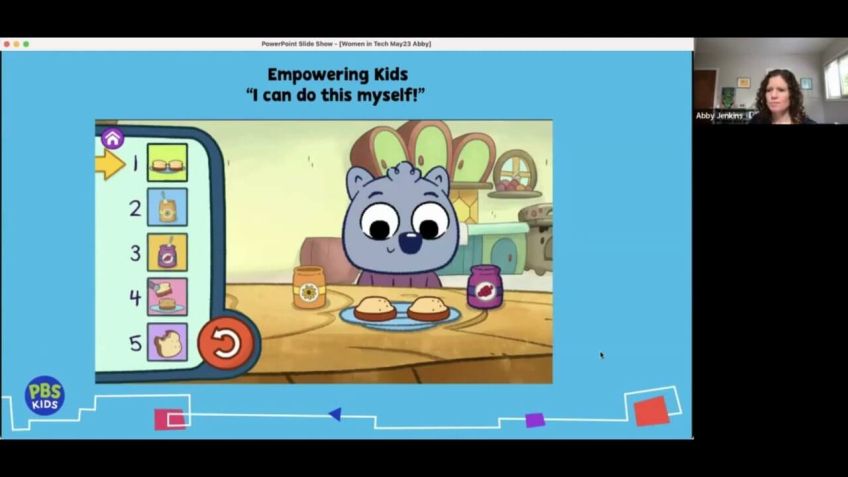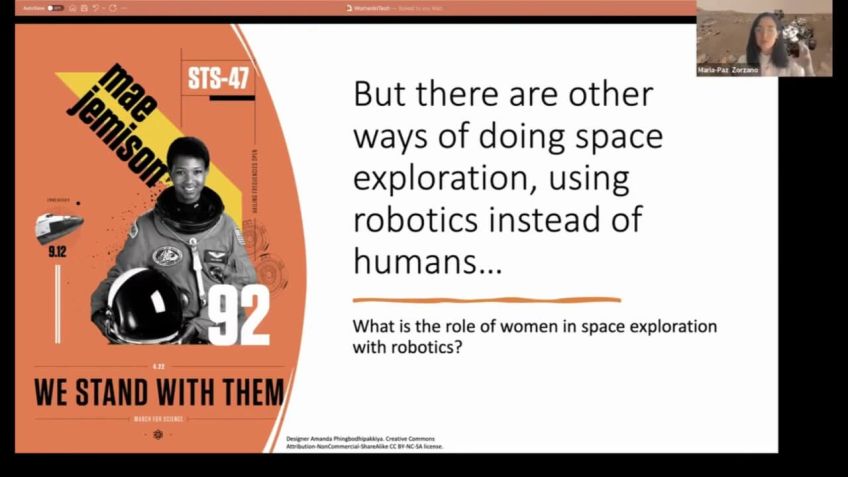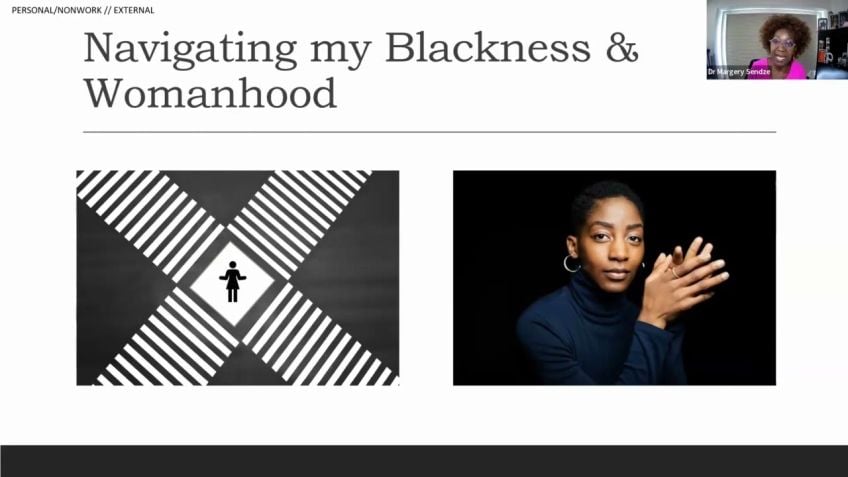Why We Need More STEM Role Models Who Are A Bit Less Brilliant"
Sarah Chapman
Technical Manager and North Europe STEM ChampionThe Power of Overcoming Stereotypes: Lessons from A Woman in Tech
In a society where we have a label for nearly everything, stereotypes could either be our greatest ally or our most daunting nemesis. Quite recently, I found myself defying a stereotype that I dared not challenge: the stereotype that I'm not a runner. Coming from a background where running for sport was far from the norm, I could barely imagine myself participating in a running club; however, that changed the instant I discovered Park Run.
Park Run: A Game Changer
Park Run, a free, timed 5-kilometer event hosted globally every Saturday morning, serves as a testament to inclusivity, embodying both competitiveness and camaraderie. Experience from Park Run taught me that stereotypes might be potent, but indeed, they're not always irrefutable. This brings us to our pivotal topic for today: breaking occupational stereotypes, especially as a woman in tech.
Battling Occupational Stereotypes
Occupational stereotypes can be a barrier that thwarts progression in certain fields due to preconceived beliefs. A widely recognized stereotype exists in the tech industry, predominantly represented by a male-dominated workforce. This discrepancy amplifies the challenge of bridging the STEM skills gap in the UK, an issue costing businesses nearly $2 billion annually. A diverse workforce is not only beneficial for innovation but also for making pragmatic decisions.
But, can we bridge this gap with the help of public perspective? My employer, Three M's recent State of Science Index, reveals public attitudes towards science and recognizes women as an untapped potential in STEM fields. This independent survey uncovers that the majority of the populace believes we need more people pursuing STEM-related careers. However, misrepresentation, outdated stereotypes, and the perceived irrelevance of science to daily life lead many to withhold from venturing into science and tech careers.
Shining the Light on STEM
Despite these challenges, we all play a part in illuminating the appeal of STEM subjects. This can be achieved through three key factors:
- Stories: Narrating interesting, relatable stories about STEM can generate interest and make STEM fields less daunting.
- Stars: Having role models and innovators in STEM inspires the younger generation and goads them towards pursuing careers in STEM.
- Streetlights: More accessible role models, including friends, family, coworkers, and mentors, who may not be widely known but are equally inspiring.
Case Study: Aspiring Dancer to Scientist
At 13, I dreamt of becoming a ballet dancer. The thought of pursuing a career in science never crossed my mind. But life happened, and I veered from ballet to science. From an inspiring teacher to a relatable poster, my journey in STEM led me to where I am today. This story emphasizes the need for role models, whether they are "stars" or "streetlights," as they help demolish false myths and manifest a more inclusive representation of STEM.
Wrapping it up
Before concluding, as leaders in tech, we need you to help break stereotypes. By investing in STEM skills, and championing diversity, we can harness a revolutionary workforce capable of elevating industries and societal advancement. If you're a woman in tech, your unique story can inspire other potential STEM stars. Always remember, diversity is what fuels innovation.
As Albert Einstein rightly said, "the only source of knowledge is experience" - perhaps that's why I needed to experience Park Run to truly debunk the stereotype that I was "not a runner." It's equally crucial to remember: to solve the world's challenges, we don't just need ideas; we need everyone to be represented.
Thank you for joining this enlightening discussion. Feel free to drop a line if you have any questions or comments.
Video Transcription
Thank you for joining me today. Have you ever been put off by a stereotype? This one held me back from joining a running club ever since school, I've firmly labeled myself as not a runner. I'm asthmatic. I hated those gym knickers as we call them in the UK.And I was teased for running like a robot. Of course. Now working in tech, I would see that as a compliment, but I still avoided running until I discovered park run. Park run is a free five kilometer timed run held every Saturday morning in parks all over the world. It's made running accessible because they genuinely welcome everybody, but it's not mediocre. It's an inclusive environment where records are broken every weekend. The friendly competition benefits everybody rather than being at the expense of people at the back. So why am I telling you this? Because I think it illustrates something you probably already know, especially if you're a woman in tech, stereotypes are powerful, but they're not irrefutable.
My background is in chemistry but I don't wear a white coat. My pronouns are she and her and I'm not a genius. My first job in tech was as an intern working on a software project with some financial software and I worked really closely with the it guy my convict him now. Blue Shirt Square spectacles Blackberry and a holster. This was a few years ago and I do wonder if, if he had been a woman and therefore a more relatable role model for me, would I have followed that path? Occupational stereotypes are a barrier. And if you're a leader in tech, then you will be acutely aware of the challenges of the growing stem skills gap in the UK alone. It costs businesses nearly $2 billion a year. You know that diverse teams are more productive, more innovative and they make better decisions. You might believe like I do that creative ideas can come from anyone regardless of age, race, gender, sexuality or divisibility. And that to solve the world's most pressing challenges, we need all the ideas we can get but to solve them for the many and not just the few, we need everyone to be represented.
What you may not know is that the general population agrees my employer three M has been tracking attitudes to science for five years now through a global independent survey called the State of Science Index. This found that over eight out of 10 people believe that women are a source of untapped potential in stem and nine out of 10 think that the world needs more people pursuing STEM related careers. However, the same research found that more than a third of people globally didn't feel their lives would be impacted if science didn't exist. So even after the pandemic, where tech connected doctors to patients, workers to workplaces, grandparents, grandchildren, many people still find it quite hard to relate stem subjects to everyday life coupled with outdated stereotypes. It's not surprising that many people don't see science and tech careers.
As for them, the good news is that we can all help to shine a light on stem subjects. And I would like to share with you three ways to do that stories. Stars and street lights stem needs some good pr I didn't enjoy STEM subjects at school until one day, a teacher told me how she'd worked for a fruit cordial company and she used chemistry to keep the taste of the drink consistent even though the fruit harvest varied. That blew my mind. Suddenly I saw the point of science. I understood that it could be used to help people. A simple story changed my perception of stem. I think when you work in an area for a long time, you can forget how, how wondrous technology can be. As technologists. We sometimes focus on the how and the what and we forget the why someone who wants to be a doctor won't tell you that they want to perform diagnostic tests or prescribe treatment. They'll tell you they wanna save lives. But why? So the first takeaway from me is that to encourage people into stem, we need to tell interesting stories about things that people can relate to in words they can understand and we need to communicate the why somewhat amusingly. Chat GP T told me that stories stick with us because they're the most authentic form of human communication. And that brings me to the humans behind the stories.
Research by Microsoft found that the number of girls interested in stem almost doubles when they have a role model to aspire them, sorry to inspire them. But underrepresented groups are kind of unlikely to find one role model exactly like them. So they need a sky full of stars to aspire to. Now, these stars are brilliant. They are at the top of their game. They're the ones who are breaking glass ceilings and smashing stereotypes. They're in books, they're on screens, they're at conferences, they are visible inspirational and mind blowing. So here are some stars in Stem who have personally inspired me. However, when I was preparing for a TED X talk on this topic, a reviewer looked at the list and asked who are these people. And that's when I realized despite significant achievements, one was the first African American woman in space. They're not household names to find really famous women in STEM. Then you have to look to pioneers of the past Ada Lovelace, Marie Curie Rosalind Franklin, which I think kind of illustrates my point. We need more diverse role models and we need to share their stories more widely so that they become household names too. So the stars and their stories are very important. However, sorry, the stars are out there. They're far away from most people to light the path.
You also need people closer to home. They're the street lights, they're the friends, the family, the mentors, the managers, the teachers, the coworkers, the volunteers, they're probably not in the media for winning awards, but they are authentic and accessible. They may be a bit less brilliant than the stars, but they're just as important and inspiring. If we only look up to the stars, then myths like needing to be a genius to have a career in science will be perpetuated. When I was 13. I had my heart set on being a ballet dancer. Everyone told me I was a natural dancer. No one ever told me I was a natural scientist when my feet decided that I wasn't going to be a dancer. I chose science and maths because I wanted to prove that I could do something different. Not because I saw myself working in STEM thanks to an inspirational teacher, I went on to study science at university. But there I found that brilliant Boffin myth again, I believed I needed a phd to make it in science. Fortunately, I saw this poster and it was a picture of a person who looked a bit like me. But in a polo suit next to a penguin. And it said not all chemists wear white coats, that poster was enough for me, but not everyone gets to see a poster like that. So that's why STEM needs all of us to share stories. Look up to the stars and illuminate the path with street lights.
So before you leave here today, please consider particularly if you're a leader in tech, how you can help tech is transforming almost every industry stem skills have never been more important. Young people can use them to pursue a career in just about anything that they're interested in.
Passions for sports or fashion or music can be followed through jobs like performance analysts, shoe designer or sound engineer and many others that are yet to be created, but you have to see it to be it. So if you're a woman in tech or a leader who values diversity, please share stories. Share the brilliant and the less brilliant bits showcase diverse authentic relatable role models and above all celebrate difference because that's what drives innovation. Thank you for listening. Enjoy the rest of the conference.
I'm not able to take chat because um this is only a 10 minute session, but I will hang around in the in the lounges um on the virtual platform later. So thank you very much.


